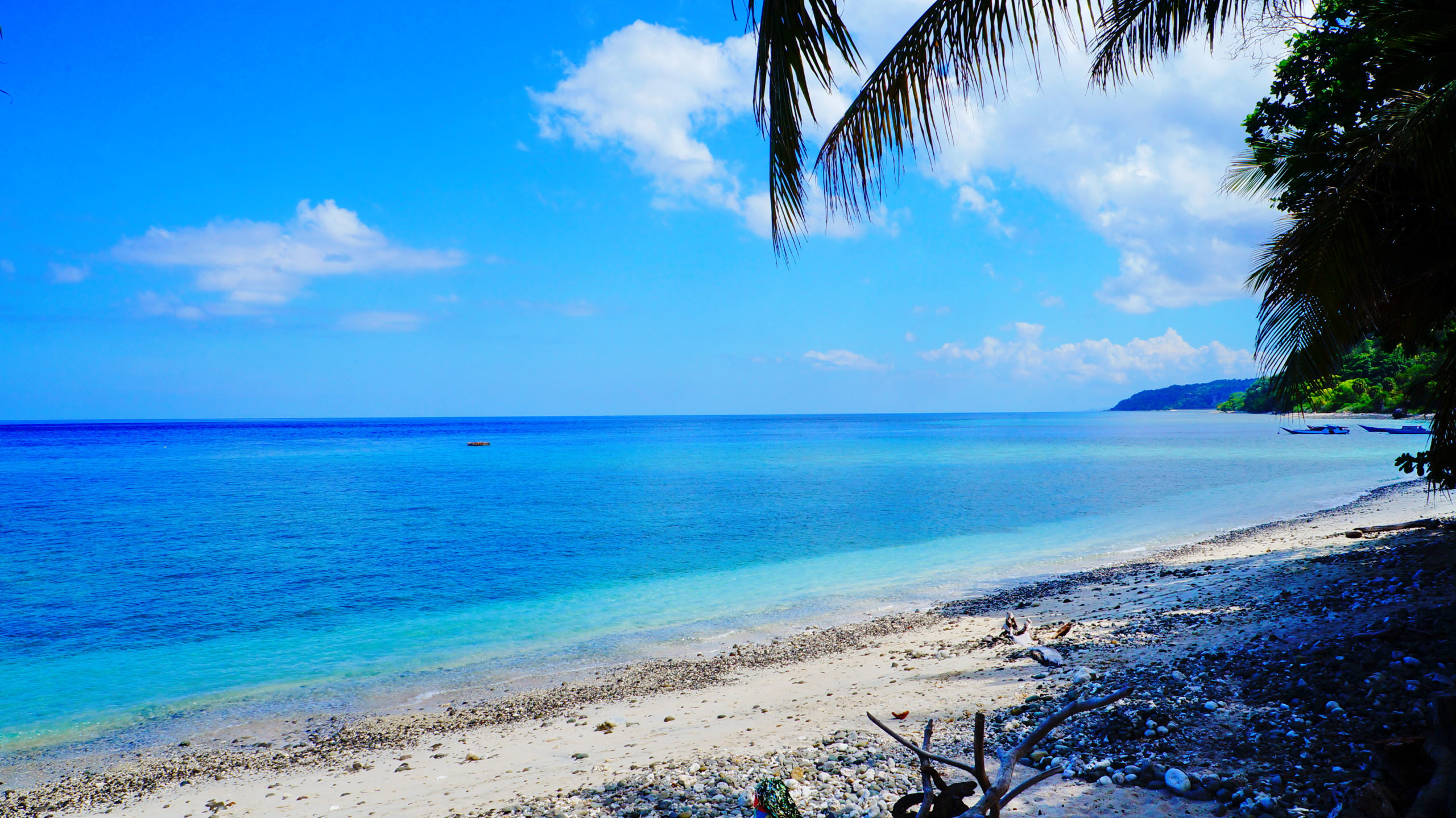
NGO Partners
Below are some of the incredible NGOs with whom ATKOMA partners. These organizations conceive and execute the programs that are helping to protect the natural and cultural resources of the island:
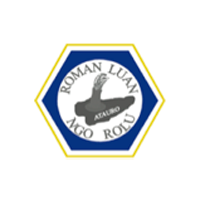
Roman Luan (ROLU)
Roman Luan (ROLU) is an independent, non-profit, non-political, non-denominational, non- discriminatory community organisation registered with Timor-Leste’s NGO Forum. NGO Roman Luan was formed on 14 February 2000 as an initiative of Ataúro Island community leaders to provide community ownership and control over key community assets including kindergartens left by the Satya Wacana Christian University (UKSW Salatiga) when their project was abandoned following the withdrawal of Indonesia in 1999. In early 2001 Roman Luan established and managed a community eco-lodge, Tua Koin. Community education, training and awareness-raising (including study trips to Bali and the Philippines to look at good and bad tourism and marine conservation; coast care and marine management community workshops) were key elements of this project which ran successfully for the benefit of the community for over ten years.
In order to inspire a strong direction for success, Roman Luan’s constitution was revised and approved in 2017. The constitution brought the NGO in line with the law on Associations of the Democratic Republic of East Timor (Decree Law No 5/2005 of 3 August 2005). Roman Luan NGO is strong as its Board of Management, drawn from the five local Ataúro Island villages and two other non-voting community members. The vision of the organization is to create on Ataúro a sustainable, healthy, and educated community that will maintain the values of our local culture and participate actively in conserving our environment and natural and human resources for the welfare of both the island and all of Timor-Leste.
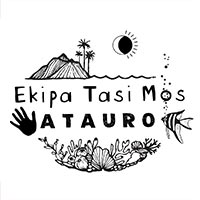
Ekipa Tasi Mos Ataúro, Timor-Leste, (Clean Ocean Team Ataúro) is a community organization that aims to remove plastic pollution from the marine ecosystem of Ataúro and to assist the community in reducing their use of single-use plastics. Ekipa Tasi Mos collects plastic debris found in the ocean and recycles it into items the community can use. They have formally opened operations in 2019 and made their first successful sale in November of that year! Learn more about their progress, activities, and products through their Facebook page. We thank them for keeping our oceans clean!

The waters of Timor-Leste are a biodiversity hotspot and a global marine conservation priority, yet data on the status of the marine ecosystem is severely lacking, with limited monitoring and research. Blue Ventures’ team of scientists, along with international volunteers, collect marine inventory data completing research dives in previously unsurveyed waters. The data collected contributes directly to efforts to develop new approaches to engaging Timor-Leste’s coastal communities in marine conservation. Particular attention is paid to threatened sea grass beds as this habitat, home to numerous vulnerable species, serves as a vital feeding ground and nursery area for reef fish. Additionally, volunteers and Blue Ventures staff do their hardest to make strong connections with the local people. We thank them for their service in trash clean up, English teaching, and community workshops.
Blue Ventures hosts regular volunteer expeditions to Ataúro where participants learn the diving and scientific skills necessary to collect data vital to its management. Regardless of your diving experience: an expert or just dipping your toes into marine conservation for the first time, you are welcome to volunteer!
Find out more about Blue Ventures and read blogs about their work in Timor-Leste.
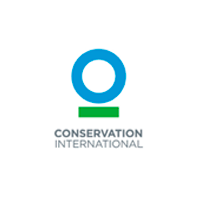
Conservation International began working in Ataúro Island in 2015. The NGO carried out a marine biodiversity survey that documented the highest average number of reef fish per site in the world, garnering global attention. Since that time, Conservation International has worked closely with communities to implement traditional law and to establish twelve marine protected areas around the island. Fish have returned around these areas demonstrating the benefit of protection locally. In October 2019, Conservation International assisted the communities in their creation of Timor-Leste’s first network of marine protected areas, bolstering conservation across the island through one collective voice. Currently, the network, with the support of Conservation International and local government, is proposing for Ataúro Island and its waters to become a National Park due to its significant biodiversity and great cultural and historical sites. Conservation International is the only international NGO to focus on conservation and environmental issues in Timor-Leste. Their work across the country aims to improve local food security, fight climate change, and enhance livelihoods primarily through the establishment of a functioning national protected area network.
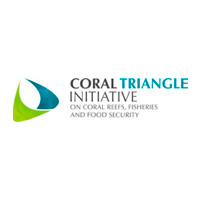
The Coral Triangle area is known as the Amazon Rainforest of the sea, with the most prolific and diverse marine life found anywhere in the world. Recognizing a great need to protect this area, the Coral Triangle Initiative on Coral Reefs, Fisheries, and Food Security (CTI-CFF) was created to protect the magnificent nature of this ecosystem. CTI-CFF is a multilateral partnership of six countries working together to sustain extraordinary marine and coastal resources by addressing crucial issues such as food security, climate change and marine biodiversity.
CTI-CFF works closely with the Timorese government to align existing and proposed policies, financial systems, development partner programs and most importantly with the Millennium Development Goals and Poverty Alleviation Schemes and Plans. The National Plan Of Action recognizes and capitalizes on the cultural and experiential diversity found in Timor-Leste and is considered a living and evolving document that will adapt to the continuous changes in Timor-Leste’s political and social backdrop. Naturally, Ataúro plays a large role in these discussions.
Our beautiful but fragile underwater ecosystem on Ataúro thanks the CTI-CFF for all the work they do to protect our home!
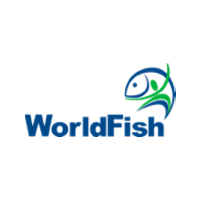
The mission of World Fish is to strengthen livelihoods and enhance food and nutrition security by improving fisheries and aquaculture. They pursue this through research partnerships focused on helping those who stand to benefit the most—poor producers and consumers, women and children.
Thanks to their recent work, Timor-Leste now has one of the most sophisticated data collection systems for small-scale fisheries in the world, following the launch of a new online dashboard that tracks fishing activities – including the number and type of fish caught by individual boats in near real-time.
The dashboard, Automated Analytics System for Small-Scale Fisheries in Timor-Leste (PeskAAS), puts important data in the hands of fisheries’ officers, researchers and local stakeholders. This will enable them to better understand the contribution of fish and fisheries to local livelihoods and food security.
The system has already highlighted previously-unknown fishing areas, patterns and productivity in Timor-Leste.
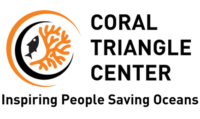
In support of the Ministry of Agriculture and Fisheries (MAF) of Timor-Leste, and in collaboration with the Roman Luan Foundation of Ataúro, CTC is helping facilitate the creation of a Marine Protected Area (MPA) covering the waters surrounding Ataúro Island in the Dili Municipality.
Design and development of this MPA has been undertaken through full consultation with the Suco and communities of Ataúro as well as MAF. The proposed MPA covers 13,251.23 ha. A zoning plan, long-term (20 year) management plan and associated regulation has been agreed and produced, delineating key marine areas for full protection, and for sustainable utilization.
The zoning plan incorporates the Tara Bandu conservation areas already established by the communities through support from partners WorldFish and CI, but has elaborated further zoning based on the results of a range of socio-economic, governance and bio-physical surveys.These surveys include manta tow assessments (2014), and surveys of marine biota (reef, seagrass and mangrove habitats), species (reef fish, turtles, cetaceans and megafaunga), fisheries (practices, markets, gears and target species), social demographics (education, economics, and livelihoods), traditional wisdom and tourism livelihood diversification opportunities (2017).
The management plan promotes effective management of the area in order to preserve and sustainably manage marine and coastal resources; to promote enhanced coral cover, mangrove forest coverage and associated fish biomass; and ensure sustainable fishery productivity and enhanced livelihood opportunities.
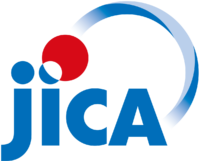
Japanese International Cooperation Agency (JICA)
Contributing to the socio-economic development of Ataúro, strengthening friendships, mutual understanding and exchange of experiences between Timor-Leste and Japan.
In February 2019 the Japanese International Cooperation Agency (JICA) dispatched volunteer support to Ataúro, working in collaboration with Empreza Di’ak NGO.The support is focused on improving the quality and marketability of local ceramic products produced by local communities. The aim is to advance product quality to enable new market access nationally.
Sharing experiences in quality ceramic production has been implemented through community visits, with the aim to:
- (1) contribute towards the development or construction of socio-economic conditions locally;
- (2) strengthen friendships and mutual understanding between Timorese and Japanese cultures; and
- (3) bring back to Japanese society the results of the volunteers’ activity experience.
Under this initiative, support is being provided up to February 2021.
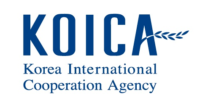
KOICA
Supporting Information, Communication and Technology (ICT) training, and cross-culture learning through language.
Korea International Cooperation Agency (KOICA) is currently implementing a number of projects and programs in Timor-Leste targeting key developmental sectors such as education, health, agriculture, fisheries and infrastructure.
In Ataúro, support has been provided to promote renewable energy through the provision of solar energy panels, and work is ongoing to promote capacity building in Information, Communication and Technology (ICT). This capacity support is being provided through a volunteer program in cooperation with the Ministry of State Administration.
In addition to ICT training, support for Korean language training is provided.
Under programs related to World Friendship Korea (WFK) and the KOICA Fellowship program, overseas training opportunities are also provided nationally, as well as a project-based invitational program, and Korea Master’s degree scholarship program.
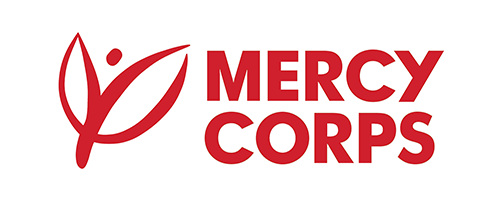
Promoting community resilience to climate vulnerability and natural disasters.
Mercy Corps has been supporting activities on Ataúro Island since 2017. Under the CROPS program, and more recently the USAID Resilensia Di’ak (Good Resilience) program, Mercy Corps is helping poor and vulnerable rural farming households become food secure by improving their resilience and reducing their exposure to recurring natural disasters. The program is designed to address the priority root causes that make farmers’ livelihoods highly sensitive to natural disasters as well as strengthen the disaster response and restoration capacity of local systems. This includes re-establishing and improving agricultural systems, providing self-sustaining financial services and supporting market systems.
On Ataúro Island, Mercy Corps provides support services predominantly through six Community Development Agents (CDAs). These are small-scale entrepreneurs from target communities in Ataúro, selected based on their business development skills, leadership skills, and their role as influencers and change agents trusted in their communities. They are individuals willing to serve their society, and are business-minded, able to navigate new market opportunities and act as a business advisor to groups. On Ataúro, three of the six CDAs (50 percent) are women, and all CDAs have received a range of training in cross-cutting areas (such as business development and communications) as well as technical specialties (in the areas detailed below). CDAs are also linked to larger wholesalers, so that they are able to provide agricultural inputs sales to communities. Through CDA support, communities are able to improve their access to financial services, while also adopting improved agricultural practices.
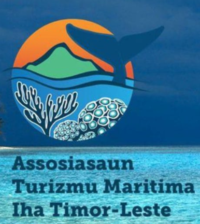
Assosiasaun Turizmu Maritima iha Timor-Leste
As the newly-established body for the marine tourism sector in Timor-Leste, the ATM-TL is committed to facilitating / supporting and promoting sustainable marine tourism development and the conservation of Timor-Leste’s globally-significant marine ecosystems.
The Dili-Ataúro Island region is currently the primary location for marine tourism activities in Timor-Leste. Significantly, the region (particularly Ataúro Island) is also a major focus for future sustainable marine tourism development activities, under the ATM-TL. The ATM-TL Strategy and Action Plan (2019-2021) has three strategic pillars, under which priority development areas have been identified for funding and implementation.
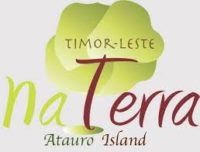
Empowering and building the capacity of local communities in Ataúro to be self-sustaining, healthy societies, living in harmony with nature.
naTerra’s activities on Ataúro focus on three key areas of work:
- Learning Center: In partnership with FAO and CI, and with support from the IBSA fund, naTerra has constructed a Sustainable Agriculture and Permaculture Learning Centre in Atekru. Opened in May 2019, the center promotes healthy and resilient lifestyles by advancing self-sufficiency in communities. Key activities include:
- Capacity building, through: short and long-term courses, internships, permaculture design certificate courses (PDC), EcoVillage design education courses (EDE), and practical trainings (such as computer and language skills);
- Promoting food and energy security, and economic autonomy;
- Empowering Ataúro’s communities towards sustainable development;
- Contributing to the conservation and preservation of local culture and environment;
- Promoting ecotourism through visits to the EcoVillage demonstration unit;
- Advancing an inter-exchange of culture and knowledge.
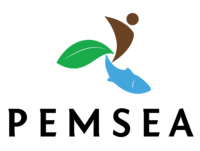
Developing and implementing Integrated Coastal Management (ICM) with Dili District to demonstrate how MPA management effectiveness can be enhanced through ICM.
Partnerships in Environmental Management for the Seas of East Asia (PEMSEA) was created with a clear mission — to foster and sustain healthy and resilient coasts and oceans, communities and economies across the Seas of East Asia through integrated management solutions and partnerships.
Since 2014, PEMSEA has been working in collaboration and partnership with Dili District on the development and implementation of an Integrated Coastal Management (ICM) program, to demonstrate how management effectiveness of MPA’s can be enhanced through ICM.
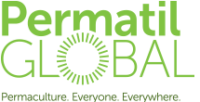
Supporting the people of Ataúro to live well, and strengthen their economic, social, ecological and cultural life through the sustainable utilization of natural resources for intergenerational equity.
PERMATIL (Permaculture Timor-Leste) supports communities through the concepts and practices of permaculture which emphasizes the ethics of: ‘Earth Care; People Care; and Fair Share.’ Permaculture systems use a holistic approach to support the everyday life of community members, including clean water, food, health, education and cooperative work, waste management, energy and aquaculture, rivers, forests, animal management, etc.
In Ataúro, PERMATIL began support work in 2016, following their proven approach of engaging and leveraging local knowledge to problem-solve community challenges. PERMATIL’s first support project was in Suco Vila Maumeta and focused on water conservation through spring restoration activities. This water-based work expanded over the following years into Suco Biqueli, particularly the hamlet of Uaro-Ana and sub-hamlet of Akrema, where spring restoration and groundwater replenishment work involved the development of an elevated hill-based reservoir, established to channel rainwater into the local aquifer and avoid loss from run-off, as well as the establishment of a series of rainwater catchment systems throughout the communities. This work has inspired other communities to replicate this approach in other areas of Ataúro.

